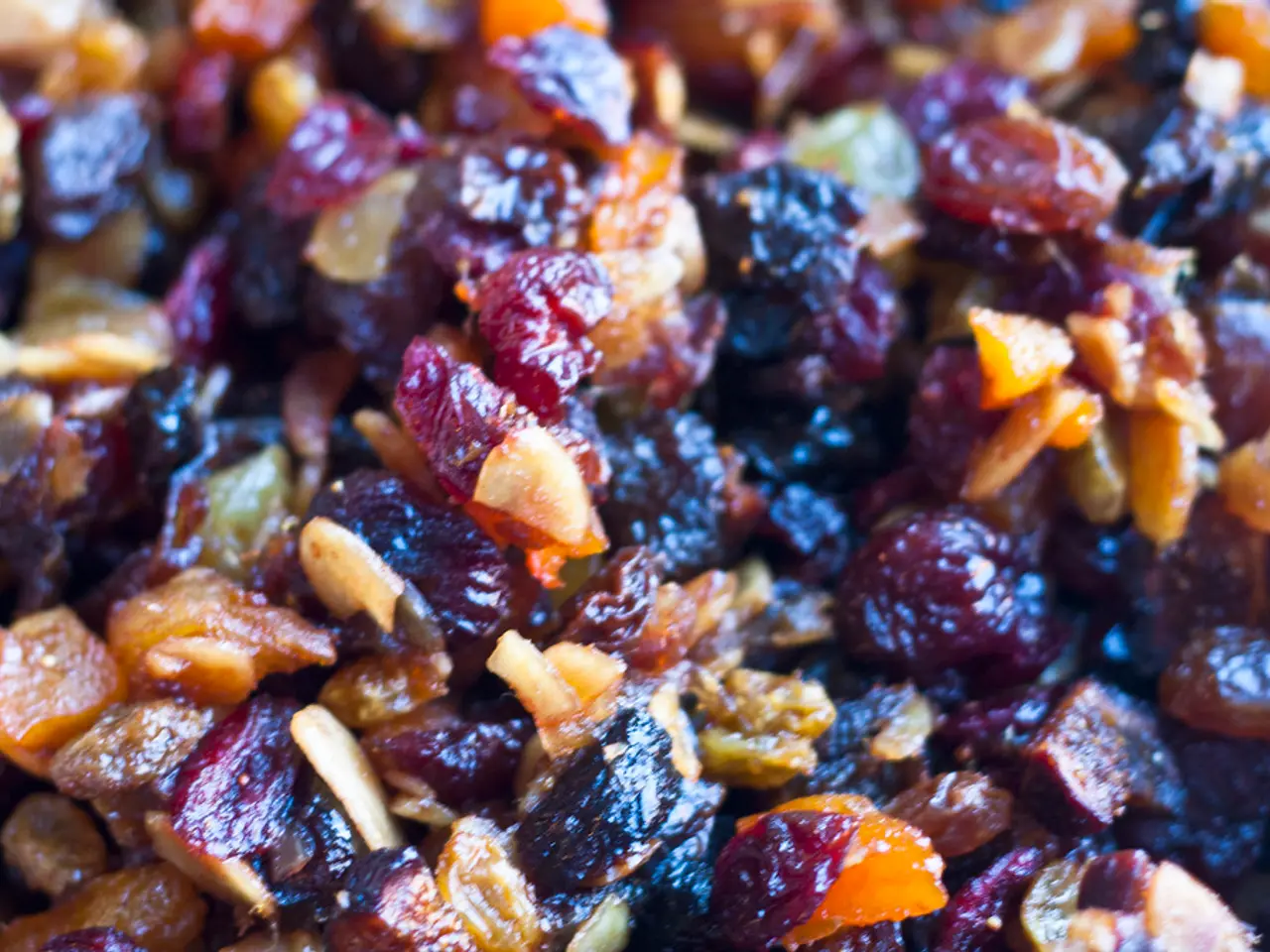High-Zinc Foods: Advantages and Inventory
In the United States, while zinc deficiencies are relatively rare, it's essential for individuals following vegetarian or vegan diets to ensure they meet their daily zinc requirements. Zinc is an essential nutrient that plays a crucial role in physical growth and development, immune system function, enzyme function, eye health, wound healing, and the creation of new proteins and DNA.
The recommended daily zinc intake varies based on age and gender. For males aged 14 and older, the recommended intake is 11 milligrams (mg), while for females it's 9 mg. Pregnant women require 11 mg, and lactating women need 12 mg. Vegan and vegetarian males should consume approximately 16.5 mg of zinc daily, while females following these diets should consume up to 12 mg per day.
Since the human body does not store zinc, it must be obtained daily through diet or supplements. Fortunately, there are numerous plant-based food sources rich in zinc.
Legumes such as lentils, chickpeas, and other beans are good sources of zinc, though the bioavailability of zinc from these sources is lower due to phytates that inhibit absorption. Soaking, fermenting, or sprouting legumes can help increase zinc absorption.
Nuts and seeds, such as pumpkin seeds (pepitas), cashews, almonds, and other nuts and seeds, provide meaningful amounts of zinc and healthy fats. Pumpkin seeds are particularly high in zinc.
Whole grains like oats, quinoa, and brown rice contain zinc, though absorption can be lower compared to animal sources. Including these foods regularly in your diet can help meet zinc needs.
Soy products, such as tofu and tempeh, not only provide protein but also offer zinc, making them valuable zinc sources for vegetarians and vegans.
Pairing zinc-rich plant foods with vitamin C sources like citrus fruits, bell peppers, and broccoli can enhance zinc absorption.
Other significant sources of zinc include poultry, red meat, and fortified breakfast cereals. However, meat-based products are usually higher in bioavailable zinc, and those who do not eat meat may need to increase their zinc intake through eating beans, seeds, and oats, among other zinc-containing foods.
Zinc supplements can be found at local pharmacies or drugstores, but it's always advisable to speak to a doctor before starting any supplement regimen, especially for those following vegetarian or vegan diets.
While zinc toxicity from excess zinc supplementation can cause symptoms such as appetite loss, diarrhea, and nausea, eating foods high in zinc does not usually cause symptoms.
In summary, pumpkin seeds, lentils, chickpeas, cashews, almonds, oats, quinoa, tofu, and tempeh are the best vegan and vegetarian food sources of zinc. By incorporating these foods into your diet and pairing them with vitamin C-rich foods, vegans and vegetarians can effectively meet their zinc needs.
**Summary Table**
| Zinc-Rich Plant Foods | Notes | |----------------------------|--------------------------------------| | Legumes (lentils, chickpeas) | Lower bioavailability; soak/sprout | | Nuts (cashews, almonds) | Good source of zinc and healthy fats | | Seeds (pumpkin seeds) | Particularly high in zinc | | Whole grains (oats, quinoa, brown rice) | Zinc present but less absorbed | | Soy products (tofu, tempeh) | Plant protein with zinc content |
- Pumpkin seeds, lentils, chickpeas, cashews, almonds, oats, quinoa, tofu, and tempeh are the best food sources of zinc for vegans and vegetarians.
- By incorporating these zinc-rich plant foods into your diet, you can effectively meet your daily zinc requirements.
- Pairing zinc-rich plant foods with vitamin C sources like citrus fruits, bell peppers, and broccoli can enhance zinc absorption.
- Since the human body does not store zinc, it must be obtained daily through diet or supplements.
- Legumes such as lentils, chickpeas, and other beans are good sources of zinc, though the bioavailability of zinc from these sources is lower due to phytates that inhibit absorption.
- Soaking, fermenting, or sprouting legumes can help increase zinc absorption.




